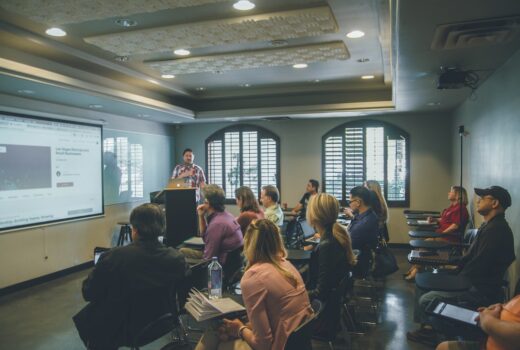Dekker wil Europees Open Access

Deze oproep tot Europese krachtenbundeling is uit de pen van een Britse conservatief en een liberale bewindsman uit ons land opmerkelijk. Zij bepleiten een krachtig Europees kennisbeleid, dat het bedrijfsleven zijn normen oplegt. U leest hun zogeheten ‘non-paper’ – een ambtelijke term voor een discussievoorzet met hoog politiek gehalte, maar nog geen formele status – hieronder.
Non-paper on open science: open access to publications and data
Taxpayers’ money should be spent in a rational and efficient way. In its Communication of 17 July 2012 and the attached Recommendation to the member states, the Commission set out its view that an effective, fast and economically productive way to do so is by furthering open access to scientific publications — journals and monographs — and data.
Transparency, openness, accountability and public engagement with research will be strongly enhanced by publishing articles in open access and/or depositing post review’ articles in a repository without an embargo or with an embargo period that is as short as possible.
Acknowledging the different views of member states on how to achieve open access and recognizing the right of member states to establish their own policy towards the subject, this non-paper seeks to describe the mutual agreement of member states on the importance of open access for a successful European Research Area. The focus is on open access to publications, but this cannot be isolated from open access to the underlying data, which is equally important.
The annex summarizes the challenges, practical ambitions and possible transition paths. If open access is to be successfully and sustainably adopted by member states, as recommended by the Commission, a new business model is required where society at large has free and unlimited access to all scientific and academic journals and the article processing costs (APC’s) are paid through another means.
Our shared common goals
- To achieve open (i.e. free and unlimited) access to scientific publications based on publicly funded research for end-users everywhere in the world.
- To strive for and support open access to the underlying data, make data interoperable and easy to re-use.
- To ensure a sustainable future for open access academic publishing.
- To implement open access in a way that is straightforward and easy to understand providing clarity and stability to universities, institutions, researchers, fu nders and publishers.
- To promote a universal, simple and straightforward approach to re-use of data and publications without restriction (as described by the CC-BY licence).
This non-paper can be used as the basis for sending a strong signal, i.e. that nations want to make progress on open access within the framework of the European Research Area (ERA).
We propose that this signal could take the form of a letter signed by all willing member states during a future informal meeting, or en marge of a coming Competitiveness Council and that this non-paper be approved by the Member States willing to sign such a letter. Some of these member states could agree to write a draft version of such a letter.
The proposed letter could recommend that the new European Commission develops an initiative in which it encourages the memberstates to:
- Monitor the rapid developments in the area of open access, and be as open and constructive as possible towards new developments in the communication of scientific ideas, and where possible facilitate and encourage them;
- To take action to publish a national policy on open access in which they take a clear position and announce measures to further open access where:
- Member states will be free to opt for the Gold or the Green models or a mix of those two;
- Member states who choose the Green model should mandate only the shortest possible embargo periods with a version as close to the final published version as possible, in line with the Commissions guidance;
- New open-access initiatives that are not based on the traditional publishing model should also be encouraged to help create an open market with more efficient and competitive fees. In support of academic freedom and research excellence, researchers should have access to these new models on a level basis with traditional models.
In addition, at national level:
- Member states will encourage their funding organizations to join forces to exchange information and best practices in order to maximise negotiating power in achieving the best value and sustaining progress through the transition;Member states will encourage their research funding organisations to fund APCs as a core part of research projects;
- Member states will encourage their research- and higher education institutions to actively manage the change in budget administration to support the transition to open access whilst balancing the funding of APCs and subscription fees without disadvantages for individual researchers.
and at the same time at the European/worldwide level:
- Member states will advocate open access in other multilateral organizations, such as the OECD, G8, UN including UNESCO, CERN, EMBL/EMBO, [SO, etc.
- Member states who are willing to lead the initiative can use their combined power to discuss changes to the business model with the largest publishing companies operating in Europe and to develop and experiment with other models. A transitional step could be European wide open access providing open access for every European citizen. A combined approach will be less expensive than if each country had to deal with publishers separately, but to provide open access to public funded research results worldwide open access should remain the main goal.
Last but not least:
Only when member states act together on all these suggested actions at the national level will it provide the most effective means of persuading publishers to implement open access models that have transparent and competitive pricing of APC’s and can have reasonable embargo periods.
Meest Gelezen
Vrouwen houden universiteit draaiende, maar krijgen daarvoor geen waardering
Wederom intimidatie van journalisten door universiteit, nu in Delft
Hbo-docent wil wel rolmodel zijn, maar niet eigen moreel kompas opdringen
‘Burgerschapsonderwijs moet ook verplicht worden in hbo en wo’
Raad van State: laat taaltoets nog niet gelden voor hbo-opleidingen



